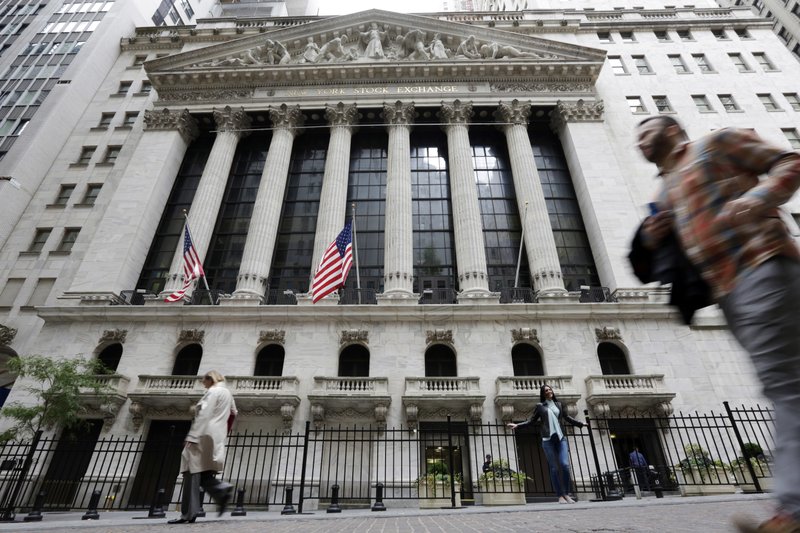NEW YORK -- U.S. stocks fell further Monday as Turkey's central bank was unable to stop a steep plunge in the nation's currency. That's helping to push the dollar higher, hurting big exporters.
The Standard & Poor's 500 index fell 11.35 points, or 0.4 percent, to 2,821.93 after a drop of 0.7 percent Friday. The Dow Jones industrial average slid 125.44 points, or 0.5 percent, to 25,187.70.
Energy and industrial companies and basic materials companies took some of the worst losses. Technology companies held up better.
The Nasdaq composite fell 19.40 points, or 0.2 percent, to 7,819.71. The Russell 2000 index of smaller-company stocks sank 11.49 points, or 0.7 percent, to 1,675.32.
Stocks are coming off their worst losses in a month as investors worry about financial and economic upheaval in Turkey and the possibility it will spread to other countries. Asian markets fell overnight, while European markets were slightly lower.
Global markets skidded Friday as investors worried that financial distress in Turkey could affect the international banking system and the broader economy. Many analysts say that isn't likely, but it has caused sharp losses for stocks.
On Monday, Turkey's central bank announced measures to help that country's banks, but the Turkish lira and Turkey's stock market continued to slide.
The lira has been tumbling as investors question whether the government of President Recep Tayyip Erdogan can cope with problems including the weakening currency and a diplomatic spat with Washington that has resulted in higher U.S. tariffs.
Investors also backed away from Argentina's stock market. The Argentine peso sank to an all-time low amid investor caution and a local corruption scandal involving former government officials.
While Turkey and Argentina face very different political situations, the currencies of both countries have tumbled to all-time lows against the dollar, partly because rising interest rates in the U.S. lure investors to take money out of their markets and move it to the U.S.
The U.S. dollar is the strongest it's been in more than a year, which could eventually create problems for companies that make a lot of sales overseas.
Terry Sandven, chief equity strategist at U.S. Bank Wealth Management, said the dollar has strengthened because economic growth has picked up and other regions aren't doing as well.
"The U.S. is a relative beacon of strength with stable to improving economy. That suggests a stronger dollar," he said.
Stocks were on a five-week winning streak before last week, and strong corporate earnings reports were a big factor. But most of those reports are done, and Sandven said stocks may spend the next two months wavering.
Shares of motorcycle maker Harley-Davidson fell 4.3 percent to $41.38 after President Donald Trump tweeted in support of a potential boycott of its products.
Trump has been criticizing the company since June, when it said it would move more manufacturing out of the U.S. to avoid European tariffs. The European Union put new taxes on U.S. motorcycles in response to the Trump administration's tariffs on products imported from Europe.
U.S. crude oil fell 0.6 percent to $67.20 a barrel in New York. Brent crude lost 0.3 percent to $72.61 a barrel in London.
Bond prices were little changed. The yield on the 10-year Treasury note stayed at 2.88 percent.
Business on 08/14/2018
